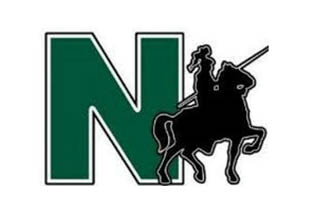Outside firm to determine viability of school buildings
by Laura Bednar
July 17 board of education meeting
The Nordonia Hills City School District hired Ameresco Asset Sustainability Group to examine each building in the district to determine what infrastructure projects should take priority.
Superintendent Dr. Joe Clark said by reviewing assets, the district can “prioritize where our money needs to go in terms of repairs.”
Board member Matt Kearney, the sole vote against hiring Ameresco, said, “The data is great, but I see concerns … there are things that need to be fixed [now] and we are spending money to get there.”
The one-time fee to Ameresco is $37,420, according to the contract, with an annual fee of $7,320 for the accompanying digital planning software.
Director of Business Casey Wright said the firm would determine the life cycle of all parts of the buildings, and the software will show how one building project affects the overall plan. He said circumstances arise where we can’t fix everything, and the firm helps answer the question, “Where do we invest our money most effectively?”
Wright added that it would create a concrete plan, and administrators could recommend improvements to the board. “It will help us spend money wisely,” he said.
Said board member Jason Tidmore, “We want to be able to not gouge our finances when everything starts breaking all at once,” adding that the firm would allow the district to anticipate needs.
Kearney noted that the district spends money on building foremen and administrators such as Wright to research and determine what’s wrong with each building. Wright explained that Ameresco would give administrators the resources to make those decisions.
Budget bill
Following last month’s description of educational components within the state budget bill, board member Liz McKinley noted which went into effect after Gov. Mike DeWine signed the bill.
The bill will phase in the new Fair School Funding Plan, which aims to make school funding more equitable among public and private schools. It increases the state share funding percentage from 5% to 10%. The minimum teacher’s salary was also raised from $30,000 to $35,000.
DeWine instituted a $20 million merit scholarship program to provide $5,000 scholarships to graduating seniors in the top 5% of their class. The funds must be used at an Ohio institution of higher education and can be renewed for up to four years if the student remains in satisfactory academic standing.
McKinley said the third-grade reading requirement has been altered; the state cannot stop third- graders who fail the test from being promoted if parents want their kids to advance to fourth grade.
McKinley added that if students “move forward with appropriate intervention, research shows that’s where students make the best progress.”
In other action
Board members approved the purchase of CENTEGIX safety equipment for $179,400. The cost covers equipment for all six school buildings for three years. Nordonia is paying for the equipment through an Ohio Attorney General safety grant, Attorney General Innovation safety grant and a K-12 safety grant.
The equipment is a badge worn by teachers that instantly notifies key personnel of a crisis when activated. Crises can include medical emergencies, student altercations, unauthorized visitors and suspicious activity, according to centegix.com.
Also approved were three-year collective bargaining agreements with the Nordonia Hills Education Association and Ohio Association of Public School Employees. Clark said almost every employee who falls under the salary schedule for non-bargaining employees received a 2% increase. ∞

